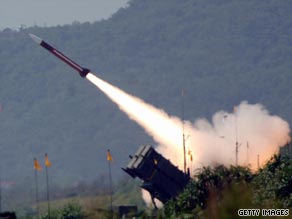
A few years ago it was “Kurtlar Vadisi,” a television series that read the national mood in Turkey and served up a highly combustible cultural product that catered to that mood and, to a certain extent, help further shape it.
The ongoing “Kurtlar Vadisi,” which tells the story of Polat Alemdar, a patriotic undercover intelligence officer who infiltrates the mafia but starts operating in the murky zone where the interests of unsavory elements of the state and of organized crime meet, brilliantly tapped into the growing nationalism of the last few years. A 2006 spin-off movie, Turkey's highest-grossing movie ever, fed on the anti-Americanism of the Bush period, sending the show's hero to Iraq to do battle with the US military (while also helping bust up a Jewish-run organ harvesting plot).
A few years ago, the show’s second season was to have started with a scene showing a group of Kurdish guerillas stopping a bus full of civilians – including a little girl – and systematically mowing them down with machine guns. Fearing thing were going too far, Turkey’s broadcast authority actually stepped in, forcing the show off the air for a season. (You can read more in this
Christian Science Monitor article I wrote at the time.)
Now Turkish television viewers can move on to the Israel-Palestine conflict, with a show called “Ayrilik” (separation). The show’s opening sequence shows a group of Israeli soldiers – hey, this sounds familiar –mowing down civilians, including a little girl, who is shot point blank by a stalking, zombie-like soldier. The Israeli government
has condemned the show, which is being shown on a state-run channel, in very strong terms. Despite having yanked “Kurtlar Vadisi” off the air a few years ago, this time Turkish officials are saying “Ayrilik” will stay on the air. “Turkey does not have censorship,” Turkish foreign minister Ahmet Davutoglu told reporters.
The background to this, on the one hand, is the current sorry state of relations between Turkey and Israel, which have been deteriorating since Israel’s invasion of Gaza. Turkey, of course, was one of Israel’s harshest critics during the invasion. And, needless to say, Turkish Prime Minister Recep Tayyip Erdogan’s now legendary performance in a panel discussion in Davos, where he stuck to it to Israeli president Shimon Peres and then stormed off the stage, helped usher a new frosty period for Turkish-Israeli relations. (For background on this, take a look at this recent
analysis piece I wrote for JTA.)
Relations took a further dive recently, after Turkey indefinitely postponed a multinational air force exercise that was to also include Israel. Turkey’s foreign ministry originally released a statement cautioning Israel to use “common sense” and not read any political meaning into the postponement. But Erdogan soon contradicted that statement, saying in an interview that Turkey had to “listen to the voice of the people” and not allow Israel to participate. Turkish foreign minister Ahmet Davutoglu, architect of the “zero problems” policy, in recent statements also indicated that hosting Israeli jets in the current atmosphere would not be appropriate.
Turkey, of course, has the right to strongly criticize Israeli policy and actions and can play an important role in doing that. Ankara also seem intent on showing the Israeli government that it won't be business as usual until things start moving on the peace process. But the current atmosphere in Turkey regarding Israel – one that Turkish PM Erdogan seems to be stoking with his relentless and highly emotional attacks on Israel – seems to be veering towards demonization (hence, the arrival of a show like “Ayrilik”). That’s bad for Turkey-Israel relations, but also damaging for the region. Ultimately, a rupture between Ankara and Jerusalem leaves Israel further isolated in the area, something that would inevitably damage the already faltering peace process.
This also ultimately damages Turkey. Obviously, Ankara’s wish to play mediator between Israel and its neighbors is now almost laughable, since it’s very hard to imagine Israel trusting Turkey with that role. But it goes further than that. Turkey is frequently touted as having the advantage of being one of the countries welcomed “both in Jerusalem and Tehran.” If Turkey stops being welcomed in Jerusalem, then it becomes just another Middle Eastern country with a dysfunctional relationship with Israel, something that makes it less of strategic and foreign policy asset in the eyes of the United States, the European Union and other Middle Eastern countries.
Turkish officials like to talk about the country’s “strategic depth” in the Middle East, based on its rich history in the region and its advantageous geographic location. In the case of its relationship with Israel, Turkey’s “strategic depth” is currently being undermined by an intellectual and diplomatic shallowness.















